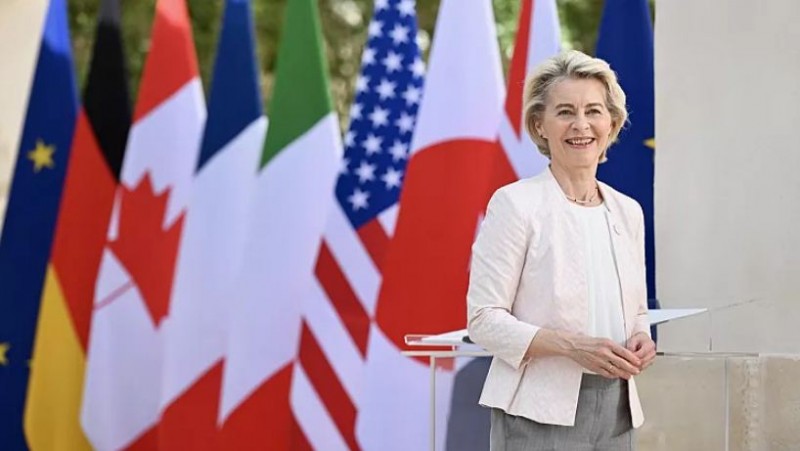
European Union leaders are meeting in Brussels to negotiate and potentially finalize the distribution of top jobs following the European Parliament elections. This informal summit will see the 27 heads of state and government discuss the appointments for the next president of the European Commission, president of the European Council, and High Representative for Foreign Affairs and Security Policy.
Traditionally, these negotiations are complex, requiring a balance of political affiliations, geographical representation, and gender diversity. In 2019, the selection process involved several days of intense discussions, including an all-night session that left leaders exhausted. However, this year's negotiations appear to be moving more smoothly.
A consensus has emerged more quickly than expected, with Ursula von der Leyen, António Costa, and Kaja Kallas being the leading candidates for the top positions. "This is the direction of travel," said a diplomat anonymously. Another diplomat noted the lack of credible alternatives as a reason for the swift agreement.
Despite high hopes for a swift resolution, the final decisions might not be confirmed until the formal summit on June 27.
European Commission: Ursula von der Leyen
Ursula von der Leyen, the current president of the European Commission, is seeking a second term. The 65-year-old German has been a prominent figure, navigating the EU through several crises over the past five years. Her centralised leadership style, the ambitious Green Deal, her response to farmer protests, and her initial reaction to the Israel-Hamas conflict were once seen as potential obstacles. However, the recent victory of her centre-right European People's Party (EPP), which won 190 seats in the June elections, has strengthened her position.
Von der Leyen has begun discussions with Socialists and Liberals to form a centrist coalition for the next five years, excluding hard-right peers. She will attend the summit but will step out once the discussions on top jobs begin. If approved, she will face a vote in the European Parliament, needing the support of 361 members to secure her position.
European Council: António Costa
The Socialists and Democrats (S&D) came in second in the European elections with 136 seats and are aiming for the presidency of the European Council. The current president, Charles Michel, cannot be re-elected after serving two terms. António Costa, who served as Portugal's prime minister from 2015 to 2024, is the frontrunner for this role. Costa is respected for his constructive attitude, though his political career faced a setback due to a corruption scandal involving his cabinet members. Despite the allegations, many diplomats believe his name will be cleared.
If Costa's candidacy falters, Denmark's Mette Frederiksen and Mario Draghi have been mentioned as possible alternatives.
High Representative: Kaja Kallas
The liberal Renew Europe group, which saw its seats drop from 102 to 80 in the elections, aims to secure the position of High Representative for Foreign Affairs and Security Policy. This role has gained significance due to global crises, despite its limitations under the unanimity principle. Kaja Kallas, the Estonian Prime Minister, is the leading candidate. Kallas has been a vocal advocate for tougher sanctions against Russia following its invasion of Ukraine. Her stance, once seen as overly hard-line, is now more widely accepted due to the ongoing conflict.
Other potential candidates include Belgium's Alexander De Croo and Poland's Radosław Sikorski. However, geographical and political considerations make Kallas the most likely choice.
As EU leaders gather to negotiate these crucial appointments, the outcome will shape the bloc's direction for the coming years. The decisions made at this summit will reflect the delicate balance of political power, regional representation, and the need for effective leadership in navigating the EU through its current challenges.
How Giorgia Meloni's Far-Right Party Secured Strong Victory in European Elections!
Italy: Giorgia Meloni’s Party Wins Big in Italy’s EU Election, Boosts Domestic Standing